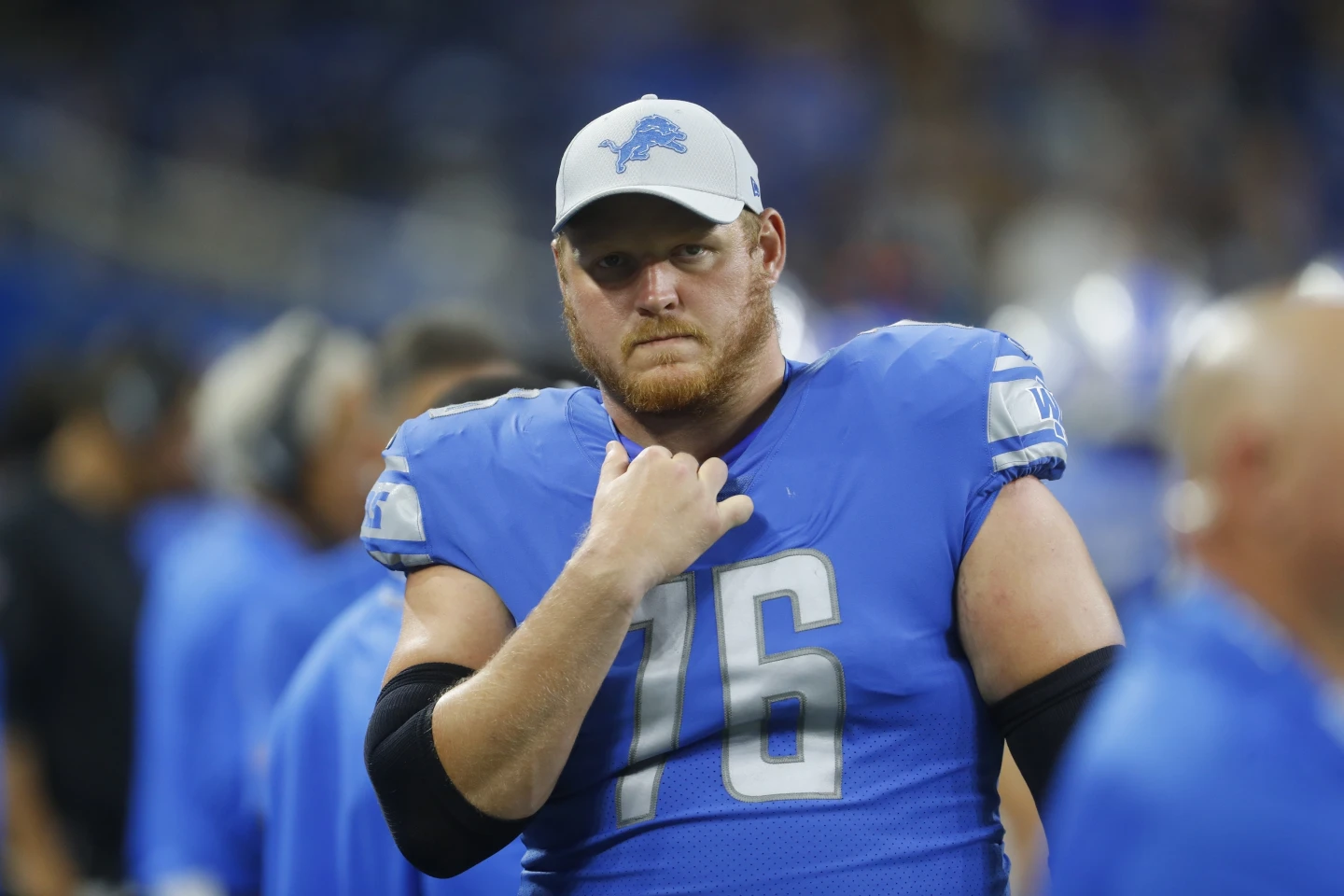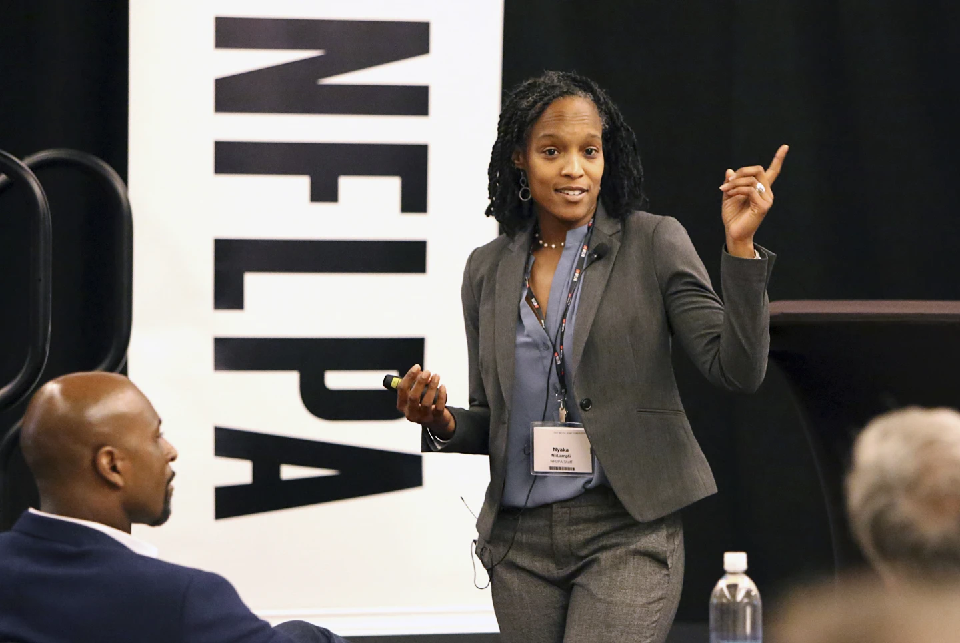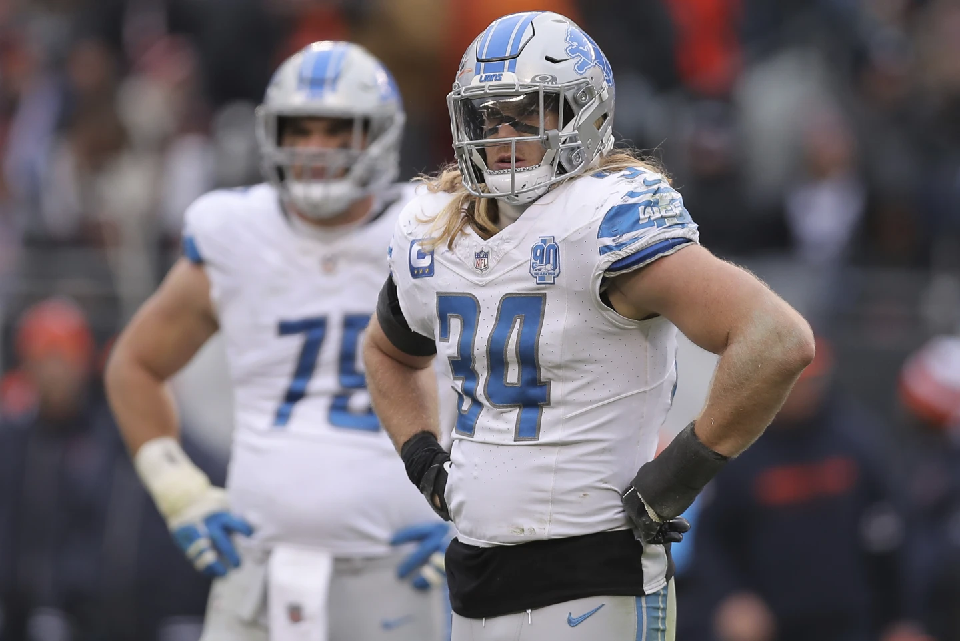NFL players steadily have used more mental health resources since the pandemic, league and union say

By Larry Lage
ALLEN PARK, Mich. (AP) — Former NFL offensive lineman T.J. Lang said no one discussed mental health 15 years ago at the start of his career.
“When you’re a big, burly athlete there’s part of you that takes pride in keeping things to yourself and looking like you’re put together,” said Lang, who played in Green Bay for eight seasons and wrapped up his career after the 2018 season following a two-year stint with the Detroit Lions. “It’s a different world now. I think it’s good that the NFL and teams are trying to help out, and make sure their players are in the right head space.
“There’s ultimate pressure in this sport. Sometimes people fail, and sometimes people need help. The more that teams encourage and normalize it, the better.”
The NFL and NFL Players Association in 2019 agreed to make it a requirement to have a licensed behavioral health clinician on the staff of each team in an effort to increase mental health resources.
“It was pivotal in terms of setting a standard,” said Amber Cargill, director of wellness at the NFLPA.
The Kansas City Chiefs, who will face the San Francisco 49ers in the Super Bowl on Feb. 11, are one of several teams in the league with a full-time professional dedicated to mental health.
The Niners have a licensed behavioral health clinician at their training facilities for 20 to 30 hours a week, much more than the eight to 12 hours mandated in the collective bargaining agreement.
The Ravens, whom the Chiefs beat in the AFC title game, hired someone before it was an obligation, adding team clinician Tricia Bent-Goodley to their staff in 2015.

Dr. Nyaka Niilampti, then-director of Player Wellness of the NFLPA, speaks during the Joint Conference of Agents and Financial Advisors at the Cosmopolitan hotel-casino on Wednesday, April 19, 2017, in Las Vegas.
“I believe we have a culture that has supported my work from its inception really and that starts from the top,” she said.
The league and union may not agree on a lot, but they seem to be like-minded in making mental health a priority and ensuring services are readily available.
There has been a steadily increasing number of players taking advantage of the opportunity to talk with mental health professionals ever since the COVID-19 pandemic started, the league and union say.
“Post-pandemic, we’ve seen an uptick in the willingness to have conversations about getting help and a normalizing of challenges like anxiety and depression,” Nyaka NiiLampti, the NFL’s vice president of clinical and wellness services, said in a recent telephone interview. “There’s also an increase in the recognition that you can’t have optimal physical performance if you’re not optimizing mental performance.”
Lions quarterback Hendon Hooker tried to keep his mind right during his rookie season this past year while coming back from a knee injury that ended his college career at Tennessee and coping with the death of loved ones. Hooker said he spoke with Michelle Garvin, a clinical psychologist who works with the Lions along with co-directors of player engagement, to develop strategies such as learning how to sleep better.

Detroit Lions linebacker Alex Anzalone (34) looks on during an NFL football game, Sunday, Dec. 10, 2023, in Chicago (AP Photo Melissa Tamez)
Garvin was hired by Lions general manager Brad Holmes three years ago and is part of a wellness team that includes Sean Pugh and Jessica Gray, whose offices are just steps outside the players’ locker room.
Linebacker Alex Anzalone had an issue of his own that he wanted to talk to someone about to try to get over the trauma triggered by the sound of his son’s leg breaking while they went down a slide together.
“When I came into work a couple days later I said: ‘Hey, Dr. Garvin. I got to talk to you,’” Anzalone recalled. “I could not get the sound of his leg cracking out of my head.
“We see her around all the time. She has open office hours, and Brad does a good job to emphasize that we should see her throughout the year.”
Lions coach Dan Campbell said Garvin has become an “unbelievable” part of the team, cultivating relationships with players over time to build trust.
“I do think our players, every year, they’re using it more and I do think it’s helping in all regards,” Campbell said. “You’re dealing with time management. You’re dealing with family issues. You’re dealing with anxiety issues.
“And she always pokes her head up there, too, with the coaches,” Campbell added. “She’ll come around once a week, once every couple of weeks and she wants to make sure that we’re being smart, getting rest.”
Buffalo Bills edge rusher Von Miller put it simply.
“There’s a stigma but heck, it’s help,” he said. “If you’ve got a hamstring pull, you go to the doctor. If you’ve got a mental something, you go to the doctor.
“Sometimes you can’t control what happens physically. Like the body’s going to do it what the body’s going to do it. But if you’re solid mentally, all the other stuff works.”
___
AP Sports Writer John Wawrow in Buffalo, New York, contributed to this report.
___
AP NFL: https://apnews.com/hub/nfl
Read original Associated Press article.